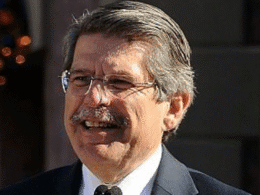Chuck Robb memories
Chuck Robb is a prominent figure in American politics, renowned not only for his service as a U.S. Senator from Virginia but also for his distinguished background as a Marine Corps officer. Born on June 26, 1939, Robb comes into the limelight not just through his political affiliations but also as the son-in-law of President Lyndon B. Johnson, giving him a unique perspective on the intertwining of personal relationships and political dynamics during a tumultuous era in American history. His memoir, “In the Arena: A Memoir of Love, War, and Politics,” serves as a critical reflection of his life experiences that shaped his worldview and political aspirations.
In this memoir, Robb takes readers through various chapters of his life, providing an intimate look at his time as a Marine during the Vietnam War, where his experiences not only tested his resolve but also influenced his political decisions later on. The significance of his narrative extends beyond personal anecdotes, resonating within the broader context of American politics and societal changes during the 1960s and 1970s. It illustrates the complexities of navigating personal relationships amidst the backdrop of service and duty, particularly as he juggled responsibilities on the battlefield with the challenges of being part of a politically influential family.
The memoir encapsulates the multifaceted nature of Robb’s life, weaving together themes of love, commitment, and the stark realities of war. Readers gain insight into how these experiences shaped not only Robb’s approach to politics but also his personal relationships, offering a holistic view of a man who dedicated his life to both public service and the values he holds dear. By exploring this memoir, one can appreciate the profound implications of Robb’s life story on contemporary political discourse and understand the lasting impact of war on individual lives and the political landscape.
The Impact of War on Personal Life
Chuck Robb’s experiences during the Vietnam War significantly influenced his personal life, shaping his understanding of love, sacrifice, and service. Serving as a Marine officer, Robb encountered numerous challenges that tested his resilience and belief systems. The Vietnam War was more than a military engagement for Robb; it stood as a real-life crucible where he learned invaluable lessons about loyalty and commitment. Such experiences not only affected his outlook on patriotism but also significantly disrupted his personal relationships.
The harsh realities of war often cloud one’s judgment and emotions. For Robb, witnessing the brutality and chaos of combat redefined his perceptions of love and sacrifice. Engaging in battles far away from home left an indelible mark on his psyche, instilling a profound respect for those who chose service over self-interest. His understanding of love was no longer a mere romantic notion; rather, it became an intricate weave of duty to one’s comrades and country. The emotional toll and volatility of war forged a lasting impact on how he nurtured relationships with peers and family. Robb’s journey illustrates how one can carry the weight of such experiences into civilian life, struggling to reconcile personal aspirations with a sense of national loyalty.
Robb’s political career eventually reflected the values he acquired in wartime. His sense of duty often permeated his decisions as a public leader. Understanding the nuances of sacrifice made him acutely aware of the needs of veterans and served as a foundation for his advocacy. This responsibility was not only about serving his constituents but also about honoring the shared experiences that shaped their lives. Ultimately, the Vietnam War served as a catalyst for Robb’s lifelong commitment to understanding the complexities of human emotion, particularly as it relates to love, sacrifice, and the politics of caring for one’s nation and its people.
Navigating the Political Landscape
Following his distinguished military service during the Vietnam War, Chuck Robb transitioned into a prominent political career that would see him serve in pivotal roles, including Governor of Virginia and U.S. Senator. Robb’s approach to governance was characterized by a commitment to bipartisanship, which he believed was essential for effective leadership and progress in a politically divided environment. His time in office was marked by significant efforts to foster collaboration across party lines, which became increasingly necessary during his tenure, especially given the heightened partisanship that characterized many political issues of the era.
As Governor from 1982 to 1986, Robb implemented policies focused on education reform, economic development, and public safety. He took a proactive stance in addressing the complex issues plaguing Virginia at the time, notably by enhancing the state’s infrastructure and promoting job growth through strategic partnerships with the private sector. Robb’s military background imbued his leadership style with a sense of discipline and resilience, shaping his approach to problem-solving and decision-making. This background in the armed forces not only instilled a deep understanding of service and sacrifice but also significantly influenced his political ideology, particularly his commitment to veterans’ affairs and national defense.
During his tenure as U.S. Senator from 1989 to 2001, Robb tackled numerous national issues, including healthcare, education, and military policy. He gained a reputation for being a pragmatic legislator willing to engage with differing viewpoints in pursuit of common goals. Robb’s advocacy for military and veterans’ issues reflected his profound respect for those who serve, which was a consistent theme throughout his political journey. Balancing the demands of governance with the realities of partisanship remained a challenge, yet his experiences forged a legacy that underscored the importance of consensus-building in achieving effective governance.
The Role of Family and Love
In “In the Arena,” Chuck Robb delves deeply into the intricate dynamics of family relationships and the profound influence of love, particularly through his marriage to Lynda Johnson. Their union, which brought together two families deeply ingrained in American political history, showcases the interplay between personal and political spheres. Navigating the complexities of public life while maintaining a stable family foundation is a central theme in Robb’s memoir, emphasizing how love acted as a crucial stabilizing force amidst the pressures of his political endeavors.
Robb reflects on the importance of loyalty within intimate relationships, particularly as a member of the politically prominent Johnson family. The values instilled in him and Lynda from an early age shaped their approach to both personal and public life. Their commitment to each other serves as a testament to the strength of familial bonds, particularly when faced with the inevitable scrutiny that accompanies a life in politics. Love, in this scenario, becomes a source of resilience, fostering a mutual understanding and support system that propelled both their personal journeys and Robb’s political aspirations.
Moreover, the memoir illustrates how family connections can influence decision-making processes in political arenas. Robb’s relationship with Lynda not only provided emotional sustenance but also shaped his worldview, prompting him to consider the broader implications of his political actions on his family and constituents alike. The reciprocity of family support and political ambition is evident throughout the narrative, showcasing how personal relationships significantly impact professional paths. These insights serve as a reminder of the importance of maintaining strong familial ties and love amidst the often tumultuous landscape of politics, ultimately highlighting the enduring power of personal connections in shaping one’s identity and choices.
Key Relationships and Influences
Throughout his memoir, “In the Arena,” Chuck Robb recounts the influential figures who played pivotal roles in his journey both personally and professionally. These relationships not only shaped his understanding of politics but also fostered his growth as a leader. One of the foremost influences in Robb’s life was former Virginia Governor and U.S. Senator, Linwood Holton. Holton’s progressive approach and unwavering commitment to civil rights provided Robb with a robust framework for his political philosophy, highlighting the importance of social justice and community engagement.
Moreover, Robb’s time in the U.S. Navy introduced him to a diverse array of mentors, including high-ranking officers who championed the values of integrity and service. These experiences in the military instilled in him the necessity of discipline and responsibility, which became cornerstones of his future leadership style. The lessons learned during this period served him well as he navigated the complex landscape of political life.
Additionally, Robb’s relationships with prominent political allies, such as fellow Democrats and members of the Virginia General Assembly, illustrate the significance of collaboration in advancing public policy. Through these alliances, Robb enhanced his negotiation skills and learned the art of building consensus among divergent viewpoints. Such partnerships allowed him to address critical issues within his jurisdiction effectively, ranging from education reform to veterans’ services.
In understanding the breadth of these key relationships, it becomes evident that Robb’s evolution as a politician was not merely about personal ambition but rather a culmination of invaluable lessons learned from various mentors and colleagues. Each connection contributed uniquely to his broader perspective on leadership and governance, deeply influencing his subsequent actions and decisions in both political and personal arenas.
Reflections on Leadership and Public Service
In “In the Arena: A Memoir of Love, War, and Politics,” Chuck Robb shares profound insights on the essence of leadership and its impact on public service. His philosophy emphasizes that effective leadership transcends mere governance; it embodies a commitment to serve the public good and to foster a community that values integrity. Robb articulates the idea that leaders are not just decision-makers but also stewards of trust and accountability.
Robb’s experiences in various political roles have shaped his belief that ethical considerations are paramount in governance. He argues that public officials must operate under a robust moral framework that guides their actions and decisions. This ethical grounding is critical, particularly in a political landscape often marred by controversies and deception. By maintaining a strong ethical compass, leaders can cultivate trust among constituents, which in turn strengthens democratic institutions.
A salient theme throughout Robb’s reflections is the necessity for integrity in leadership. He recounts instances from his own tenure where adhering to ethical principles led to difficult choices yet reinforced his commitment to public values. Robb notes that leaders who prioritize transparency and accountability elevate the expectations of those they serve, inspiring a culture of responsibility within their offices and beyond. This notion of integrity is particularly relevant in today’s political climate, where skepticism towards leadership is prevalent.
In discussing public service, Robb reiterates that true leaders must be deeply connected with the communities they represent. This connection fosters a sense of accountability, and by actively engaging with constituents, leaders can adapt policies and strategies that reflect the needs of the people. Ultimately, Robb highlights that the path toward effective leadership in public service is paved with a commitment to ethical standards, integrity, and a genuine connection to the community, lessons that remain invaluable for current and future leaders.
Lessons Learned from Adversity
In the memoir “In the Arena: A Memoir of Love, War, and Politics,” Chuck Robb recounts numerous adversities that shaped his character and resolve, offering a profound perspective on resilience and determination. Throughout his diverse career, which encompasses distinguished military service and a dynamic political life, Robb faced several significant challenges that tested both his abilities and his convictions. These experiences underscore the notion that adversity often acts as a catalyst for personal growth and strength.
One prominent challenge Robb encountered was during his time in the Vietnam War. As a young officer, he confronted the harsh realities of conflict, which included not only the physical dangers of combat but also the emotional toll it took on both him and his fellow soldiers. This experience taught him invaluable lessons about leadership and the importance of camaraderie. By navigating the complexities of warfare, he developed a sense of empathy and understanding that would later play a crucial role in his political career.
In the political arena, Robb faced numerous setbacks, including fierce opposition and political defeats. Navigating the tumultuous landscape of American politics required persistence and adaptability. Each setback provided him with introspection on his principles and strategies, ultimately contributing to his growth as a leader. His ability to learn from failures, rather than becoming discouraged, showcases the importance of maintaining a forward-thinking mindset in the face of adversity.
Moreover, Robb’s experiences illustrate that resilience is not solely about enduring difficulties but also about emerging stronger and more resolved. By reflecting on his challenges, Robb emphasizes that overcoming adversity fosters character and can lead to significant achievements. His story serves as a reminder that those who weather the storms of life often come out on the other side equipped with wisdom and tenacity, which can inspire others facing their own difficulties.
Political Commentary and Insight
In “In the Arena: A Memoir of Love, War, and Politics,” Chuck Robb articulates a nuanced perspective on the evolution of American politics and society throughout his career. Robb’s insights often reflect a deep understanding of the political landscape, offering commentary that connects historical events to contemporary issues. Throughout his memoir, he examines how shifting political trends have impacted governance and citizen engagement in the United States, emphasizing the dynamic nature of political ideologies and the importance of democratic values.
One significant observation Robb makes is the growing polarization within American politics. He critiques the increasing tribalism infiltrating party lines, suggesting that this phenomenon undermines democratic processes and the ability to achieve bipartisan cooperation. By reflecting on his own experiences in both the Senate and Virginia’s governorship, he illustrates the complexities of negotiating political differences, advocating for a return to discourse rooted in mutual respect and collaboration.
Robb also comments on the societal changes that have accompanied these political shifts. He shares his experiences during pivotal moments in American history, including the civil rights movement and the Vietnam War, which serve as a backdrop for his understanding of emerging social justice issues. He highlights how these periods witnessed a reevaluation of American values, emphasizing the necessity of adapting to the evolving needs of society while maintaining core principles of equality and justice.
Moreover, Robb reflects on the impact of media on public perception and political discourse. The advent of digital communication has shaped how individuals engage with political content, often leading to the spread of misinformation. He calls for critical media consumption and civic responsibility among citizens, positing that an informed electorate is essential for safeguarding democracy. Through his reflective narrative, Robb successfully underscores the importance of understanding the past to navigate contemporary political challenges and to foster a more engaged society.
Legacy and Conclusion
Chuck Robb’s memoir, “In the Arena,” serves as both a personal narrative and a political chronicle, intricately weaving the themes of love, war, and governance. As we analyze the legacy he leaves behind, it is clear that Robb’s experiences illuminate the challenging dynamics of public service and personal relationships. The intertwining of these elements not only provides insight into his life but also invites readers to reflect on the broader implications of his journey within contemporary society.
Through his account, Robb highlights the often overlooked emotional toll of political life, especially during turbulent times marked by war and division. His candid reflections on love—both familial and romantic—underscore the resilience required to navigate personal challenges while serving the public. The memoir’s emphasis on empathy and ethical considerations within politics stands as a reminder of the human elements that underpin governance. Furthermore, it accentuates the importance of maintaining personal values in a landscape that can frequently lead to moral ambiguity.
Robb’s narrative also resonates with current debates about the responsibilities of leaders in fostering unity and understanding in polarized environments. His experiences during the Vietnam War, alongside his domestic political career, provide poignant lessons on the consequences of decisions made under pressure and the legacy they create. These reflections serve as a call for contemporary leaders to be mindful of their actions and their lasting impact on society.
In conclusion, “In the Arena” encapsulates the complexities faced by individuals in positions of authority, while simultaneously exploring intimate aspects of love and loyalty. Robb’s story is not just a memoir; it is a testament to the enduring struggles of humanity and an invitation to engage with the themes of integrity and compassion in both personal and political realms. As readers contemplate his insights, they may find parallels that encourage a deeper involvement in the ongoing discourse surrounding governance and personal ethics.




